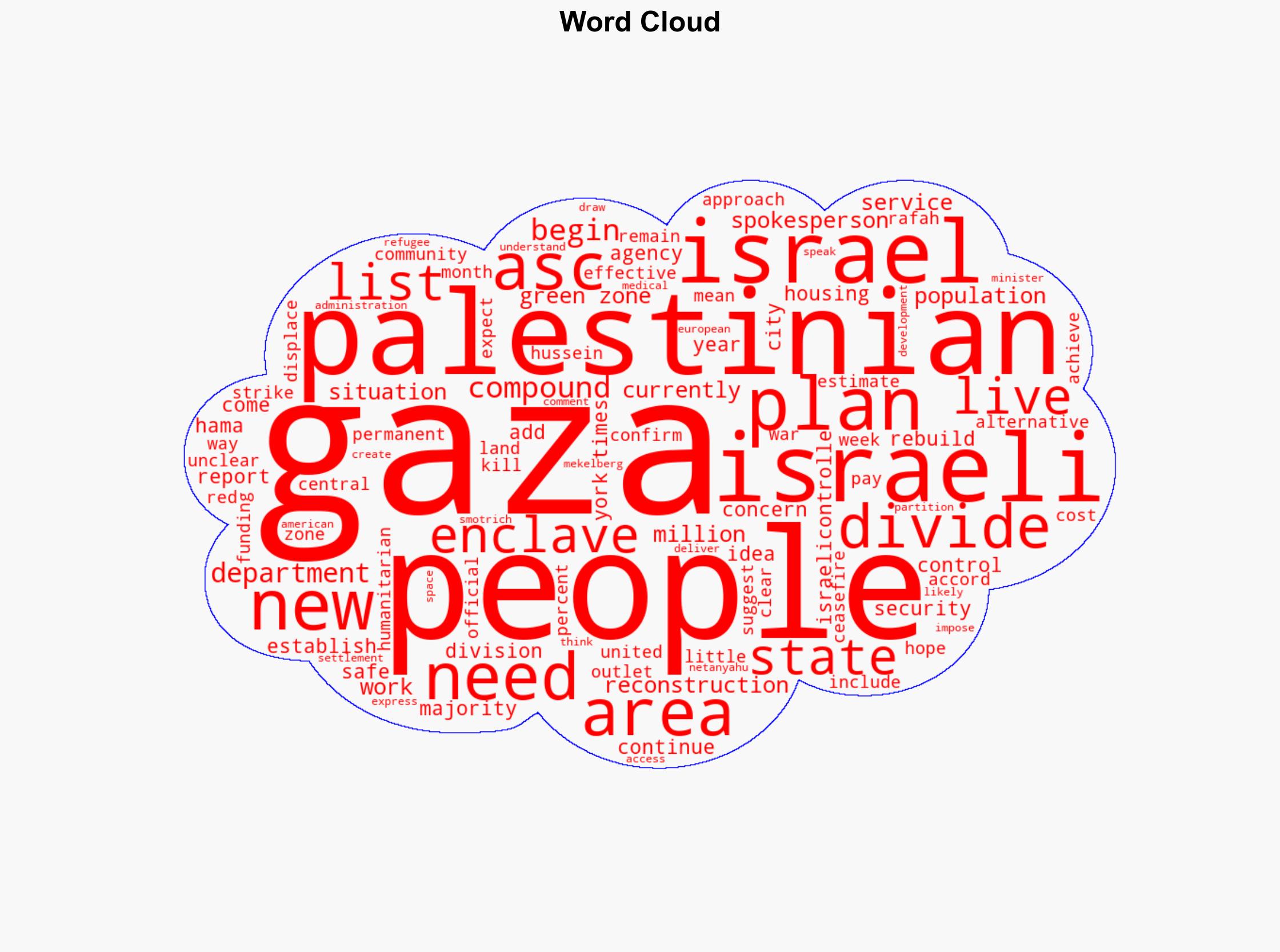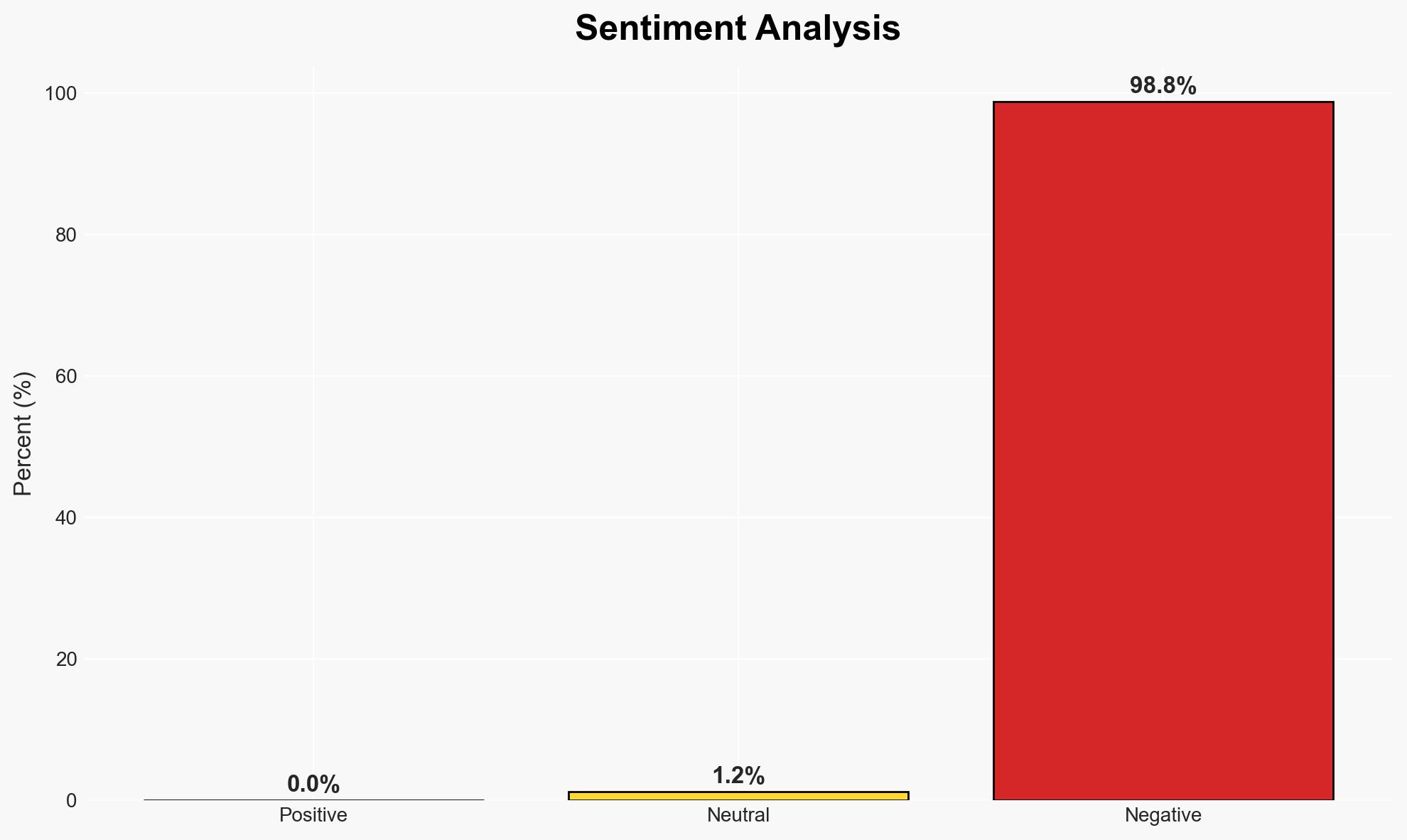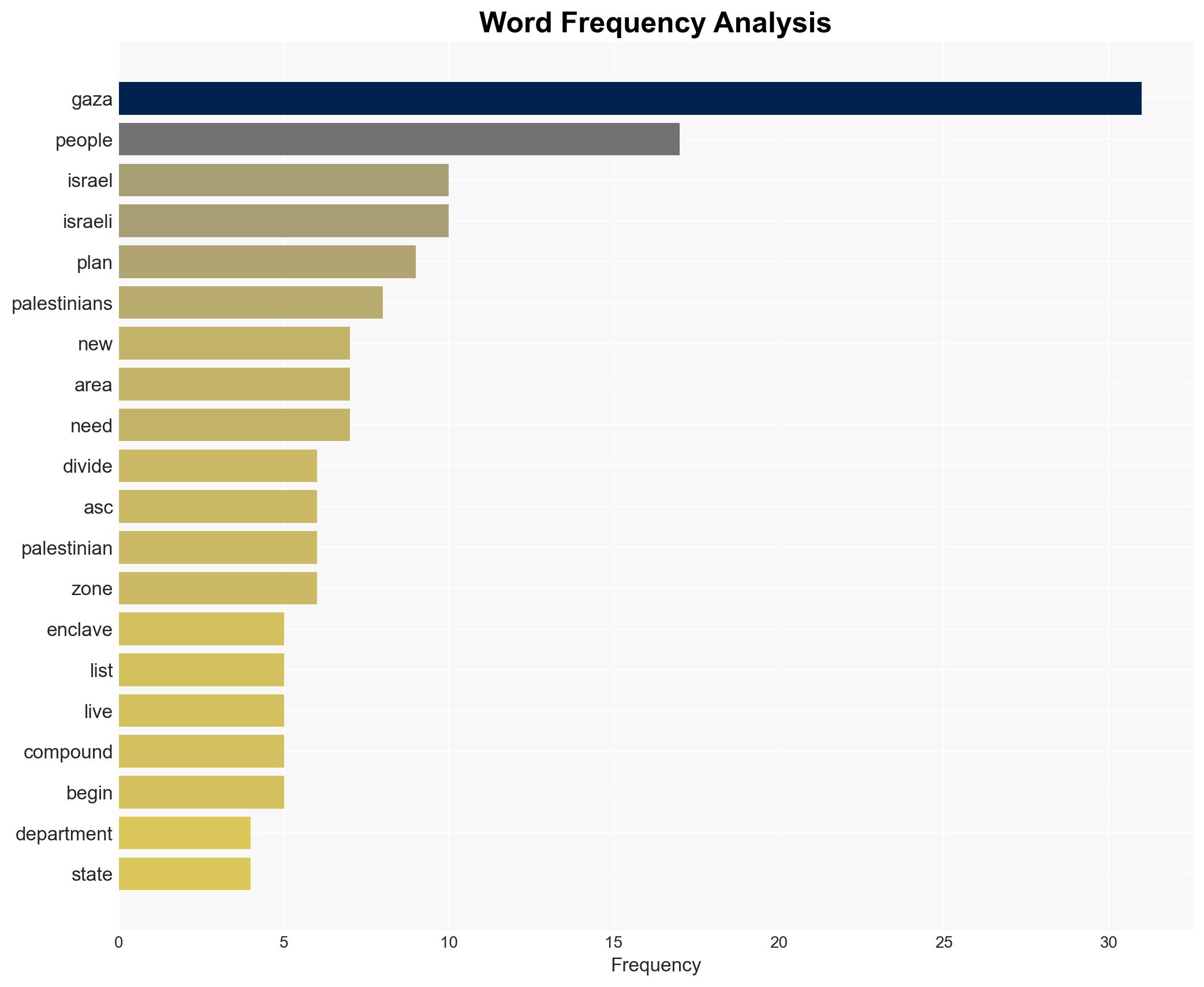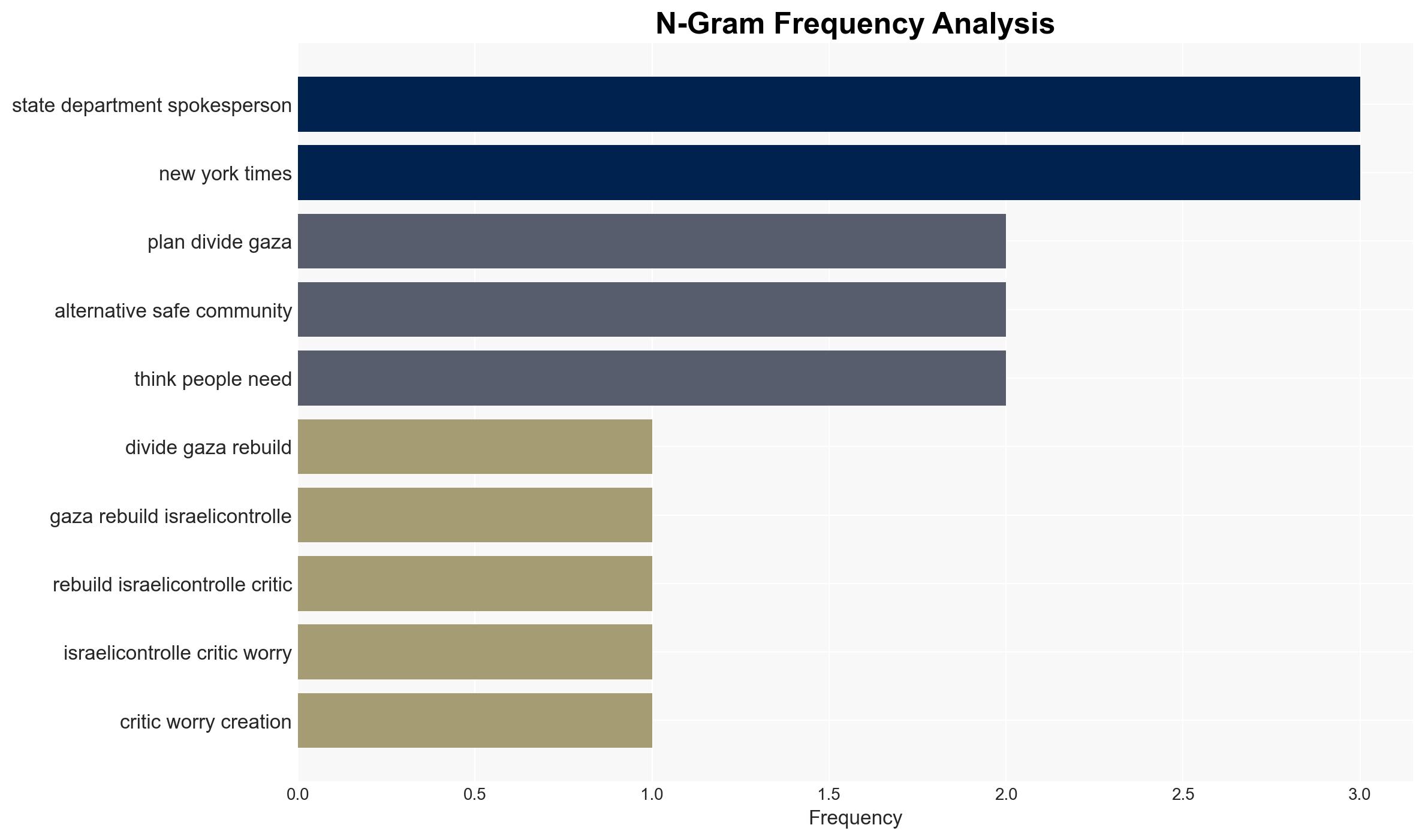US supports initiative to reconstruct Gaza with a division between Israeli and Palestinian-controlled areas
Published on: 2025-11-27
AI-powered OSINT brief from verified open sources. Automated NLP signal extraction with human verification. See our Methodology and Why WorldWideWatchers.
Intelligence Report: US appears to back plan to divide Gaza rebuild Israeli-controlled side
1. BLUF (Bottom Line Up Front)
The United States appears to support a plan to divide the Gaza Strip into zones controlled by Israel and Hamas, with a focus on rebuilding in Israeli-controlled areas. This plan, known as the Alternative Safe Community (ASC), aims to provide secure housing for displaced Palestinians. The initiative faces significant logistical and political challenges, with moderate confidence in its successful implementation due to existing uncertainties and opposition.
2. Competing Hypotheses
- Hypothesis A: The ASC plan will lead to a sustainable and peaceful reconstruction of Gaza, with international support facilitating effective implementation. Evidence includes reported backing by the US and the strategic focus on secure housing. However, uncertainties remain regarding funding and political acceptance by Palestinian groups.
- Hypothesis B: The ASC plan will exacerbate tensions, leading to further division and conflict. This is supported by criticism of creating permanent divisions and the potential for increased resistance from Palestinian groups. Contradicting evidence includes the stated humanitarian intent of the plan.
- Assessment: Hypothesis B is currently better supported due to the lack of clarity on funding, political opposition from Palestinian entities, and potential for increased tensions. Indicators such as international diplomatic reactions and local acceptance could shift this judgment.
3. Key Assumptions and Red Flags
- Assumptions: The US and Israel have aligned interests in stabilizing Gaza; the ASC plan will receive necessary funding; Palestinian groups will not violently oppose the plan.
- Information Gaps: Detailed funding sources and commitments; specific operational plans for reconstruction; reactions from key Palestinian stakeholders.
- Bias & Deception Risks: Potential bias in US and Israeli reporting; risk of underestimating Palestinian opposition; possible manipulation of public narratives to gain support.
4. Implications and Strategic Risks
The ASC plan could lead to significant shifts in regional dynamics, affecting political alliances and security conditions in the Middle East.
- Political / Geopolitical: Potential for increased Israeli-Palestinian tensions; impact on US relations with Arab states.
- Security / Counter-Terrorism: Possible escalation in militant activities if Palestinian groups perceive the plan as a threat.
- Cyber / Information Space: Likely increase in propaganda and misinformation campaigns from involved parties.
- Economic / Social: Economic strain on Gaza’s reconstruction efforts; social fragmentation if divisions become permanent.
5. Recommendations and Outlook
- Immediate Actions (0–30 days): Monitor diplomatic communications for shifts in international support; engage with Palestinian leaders to assess acceptance levels.
- Medium-Term Posture (1–12 months): Develop resilience measures for potential escalation; strengthen partnerships with regional allies to support humanitarian efforts.
- Scenario Outlook: Best: Successful reconstruction with broad support. Worst: Increased conflict and division. Most-Likely: Ongoing tensions with partial implementation. Triggers include funding clarity and local acceptance.
6. Key Individuals and Entities
- Not clearly identifiable from open sources in this snippet.
7. Thematic Tags
National Security Threats, Gaza reconstruction, US foreign policy, Israeli-Palestinian conflict, humanitarian aid, geopolitical tensions, regional security, international diplomacy
Structured Analytic Techniques Applied
- Cognitive Bias Stress Test: Expose and correct potential biases in assessments through red-teaming and structured challenge.
- Bayesian Scenario Modeling: Use probabilistic forecasting for conflict trajectories or escalation likelihood.
- Network Influence Mapping: Map relationships between state and non-state actors for impact estimation.
Explore more:
National Security Threats Briefs ·
Daily Summary ·
Support us





